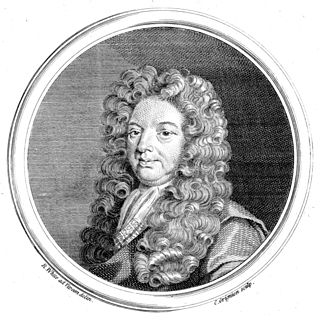
John Blow was an English composer and organist of the Baroque period. Appointed organist of Westminster Abbey in late 1668, his pupils included William Croft, Jeremiah Clarke and Henry Purcell. In 1685 he was named a private musician to James II. His only stage composition, Venus and Adonis, is thought to have influenced Henry Purcell's later opera Dido and Aeneas. In 1687, he became choirmaster at St Paul's Cathedral, where many of his pieces were performed. In 1699 he was appointed to the newly created post of Composer to the Chapel Royal.

Sir Granville Ransome Bantock was a British composer of classical music.
John Maynard La Montaine, also later LaMontaine, was an American pianist and composer, born in Oak Park, Illinois, who won the 1959 Pulitzer Prize for Music for his Piano Concerto No. 1 "In Time of War" (1958), which was premiered by Jorge Bolet.

Sir John Blackwood McEwen was a Scottish classical composer and educator. He was professor of harmony and composition at the Royal Academy of Music, London, from 1898 to 1924, and principal from 1924 to 1936. He was a prolific composer, but made few efforts to bring his music to the notice of the general public.
Giovanni Battista Bassani was an Italian composer, violinist, and organist.

Emil Hartmann was a Danish composer of the romantic period, fourth generation of composers in the Danish Hartmann musical family.
William Henry Bell, known largely by his initials, W H Bell, was an English composer, conductor and lecturer.

Ernest Walker was an Indian-born English composer and writer on music, as well as a pianist, organist and teacher.
Lobe den Herrn, meine Seele, BWV 143, is an early cantata by Johann Sebastian Bach. He appears to have composed the cantata for New Year's Day, probably when he was in his 20s, but whether it was first performed in Mühlhausen or Weimar is not known: the date of composition is unclear. Bach's authorship has been doubted because the cantata has several unusual features; one of these is the scoring, it is the only Bach cantata to combine three corni da caccia with timpani.






